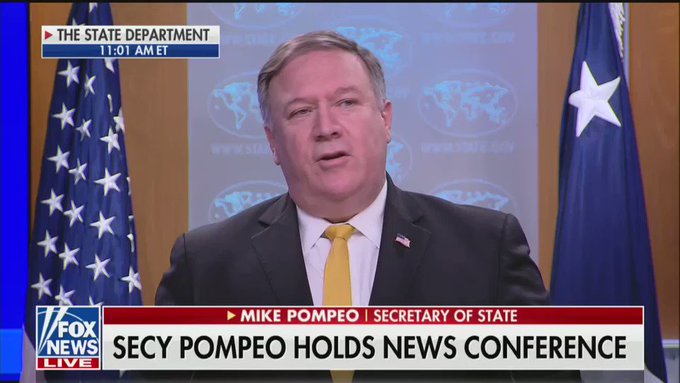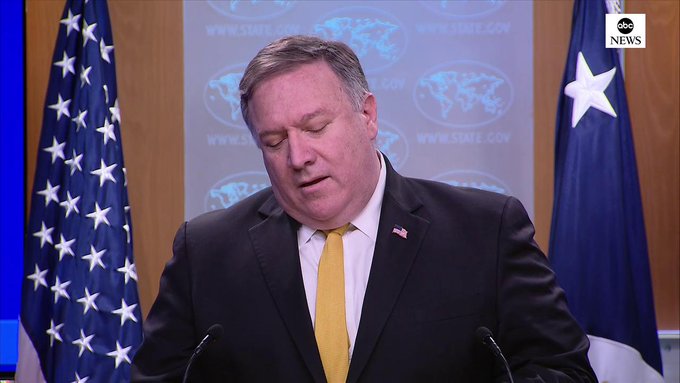After UN Top Court Rules In Favor Of Iran, Pompeo Terminates Decades-Old Treaty
3
October, 2018
The
drums of war are beating over Iran and Syria as Secretary of State
Mike Pompeo on Wednesday morning responded to the
United Nations' top court ordering the US to lift sanctions
on "humanitarian" goods to Iran.
Pompeo made a series of threatening statements targeting Iran as well
as Syria, which also comes after the latter received delivery of
Russian S-300 anti-air defense missiles early this week.
Pompeo
said in his State Department press briefing, "I'm
announcing that the United States is terminating the 1955 treaty of
amity with Iran. This is a decision that is 39 years over due."
He
was referencing a 1955 "friendship treaty" or so-called
Treaty of Amity which had been established long before the 1979
Islamic Revolution brought the Ayatollahs to power.
In
July Tehran had pulled the US before the International Court of
Justice (ICJ) to demand that the UN immediately suspend economic
sanctions leveled by Washington after Trump ordered US pullout of the
2015 nuclear deal and the reimposition of far-reaching rounds of
sanctions targeting Iran's energy and other vital sectors.
The
ICJ's ruling is a huge blow to Washington (though perhaps
largely symbolic) and a diplomatic win for Iran as it unanimously
ruled that Washington "shall
remove by means of its choosing any impediments arising from the
measures announced on May 8 to the free exportation to Iran of
medicines and medical devices, food and agricultural commodities" as
well as airplane parts, said judge Abdulqawi Ahmed Yusuf. The court
pointed out that targeting aviation parts created the "potential
to endanger civil aviation safety in Iran and the lives of its
users".
The
decision essentially gives UN-imprimatur and legal cover for
countries and companies seeking to still do business with Iran amidst
threats of punitive action by the US should they proceed. But
Pompeo slammed the international court's decision as null and void
and Iran's clinging to the "decades overdue" treaty
"absurd" in announcing the "termination".
The
ICJ rules on disputes between UN member states, but its decisions
are ultimately
largely symbolic and non-binding as it has not way to enforce them.
The United States has no higher chain of appeal now that the ICJ
has finally ruled on the issue.
Iranian
Foreign Minister Mohammad Javad Zarif had previously this week called
the sanctions a
form of "psychological warfare" aimed at regime change.
"The economic warfare that the United States and some of its
regional clients are conducting against Iran is psychological warfare
more than real economic warfare," he told the BBC in an
interview.
Elsewhere
in Pompeo's Wednesday remarks he took aim and Iranian actions in the
broader Middle East saying intelligence is
"solid" that Iran is to "blame" for the attack on
the US embassy in Baghdad's 'green zone' in early September.
He
also referenced gunfire on the US consulate in Basra, which late
last week the US shuttered by
ordering all non-essential personnel to evacuate. "We
can see the hand of the Ayatollah and his henchmen supporting these
attacks on the United States," Pompeo
said.
"Iran
is the origin of the current threat to Americans in Iraq," he
added. And he also made reference to Syria, noting that after Russia
on Wednesday published photos of its S-300 transfer to the Syrian
government, that the
US is "concerned" with this "serious escalation".





No comments:
Post a Comment
Note: only a member of this blog may post a comment.